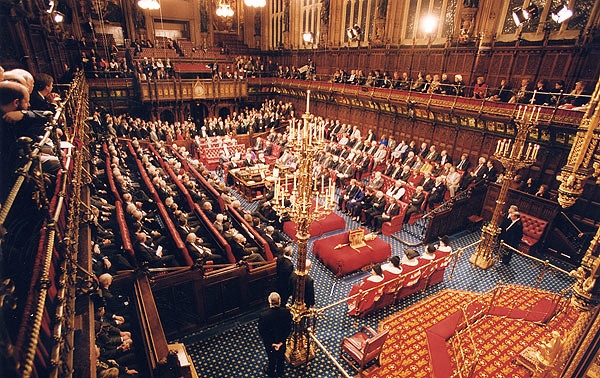The House of Lords is the upper house of the Parliament of the United Kingdom and is made up of 798 peers. The peerage is comprised of 26 archbishops and bishops of the Church of England who make up the Lords Spiritual, and 682 life peers and 85 hereditary peers who form the Lords Temporal. Each peer has the responsibility of debating and amending legalization, making and shaping laws, amending or rejecting bills, scrutinizing the work of the government and investigating public policy.
A person can become a House of Lords peer through the ‘House of Lords Appointments Commission’, which recommends individuals for appointment as non-party-political life peers and vet nominations to ensure the highest standards of propriety. Members can be suggested by public and political parties, and once approved by the prime minister, appointments are formalized by the Queen. Resigning Prime Ministers can also recommend peerages for fellow politicians, political advisors, etc. who have supported them (Resignation Honours), and, peerages can also be given to MPs from all parties who are leaving the House of Commons after the Dissolution of Parliament, prior to a general election (Dissolution Honours). There are also 85 birthright peers.
On one hand, many MPs, elites, members of the House of Lords and some members of the British public believe that peers bring valuable additional expertise into public life. Some may argue that the peers have earned their titles and are qualified for the job; many peers have been appointed because they are thought of as having knowledge and experience in politics and legislation, are a leader in business and industry or have made a tremendous difference to their community or within their field of work. However, the House of Lords remains completely unelected, meaning the British public has no say in who becomes a peer and who doesn’t. All peers can hold their seats until they die and are not, in any way, accountable to or removable by citizens. Therefore, the appointment processes seem to undermine British democracy. Furthermore, resigning Prime Ministers often appoint their friends rather than people who would make the best decisions for the British public. This raises the question of whether peers are being appointed for the right reasons.
Significantly, only 28% of the 798 House of Lords Peers are women, only 6% are ethnic minorities and the vast majority of the peers are extremely wealthy political figures and business men. Thus, the House of Lords is extremely unrepresentative of modern, British society. To ensure that the House of Lords’ decisions represent the wants and needs of our diverse society, there should be a fair proportion of women, ethnic minorities and lower-class persons in the House of Lords. Moreover, can we really trust that a constituency of mostly wealthy, white political figures and business men to make decisions that will benefit the average British citizen, or will they make decisions that will benefit themselves?
Furthermore, many House of Lords peers do not take their role seriously and take advantage of their ability to claim expenses. A report showed that the peers claimed a whopping £23 million in 2020 – every year, peers are claiming anywhere from £25,000-£75,000 in expenses, and many of these peers never have never voted, made any spoken or written contributions, or at the most, they have contributed once or twice. For example, 110 peers did not make any contributions yet claimed over £1 million in 2020. Lord Paul only spoke in the chamber once but claimed £48,000 despite having a family fortune of £2bn. In 2018, 1 in 9 peers never spoke, held a government post or participated in a committee at all and 46 peers did not register a single vote, including on Brexit, or sit on a committee or hold a post. In the same year, more than 270 peers claimed over £40,000 in allowances, with two claiming more than £70,000 and one peer even claimed over £50,000 in travel and attendance expenses covering every single day the House of Lords was sitting, despite not contributing. The peers’ expenses come from taxpayers’ money, which could be put towards the NHS, supporting poor families, tackling institutional racism, etc. – but instead, the money is going into the pockets of wealthy and greedy peers. Clearly, many of the House of Lords peers have only agreed to becoming a peer for the status and financial gain, not because they want to better society.
It is evident that the House of Lords should be reformed, if not abolished altogether. The House of Lords ought to represent British society accurately and fairly to ensure that the decisions made on our behalf are best for all of us, not just for the most privileged people in the country. Peers should only be able to claim travel expenses, and that is only if they turn up to Parliament and contribute. The peerage should be comprised of people who want to better society and are qualified to make decisions regarding legislation and those who do not actively contribute must be stripped of their role.
Fiona Western
Image source: Flickr

